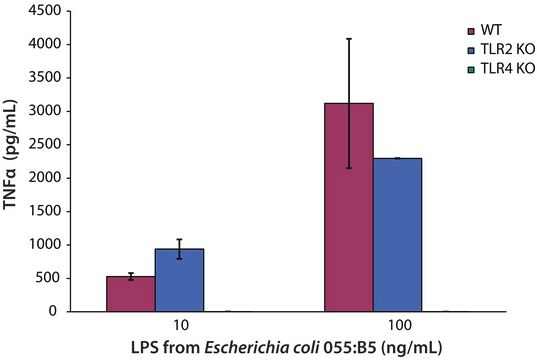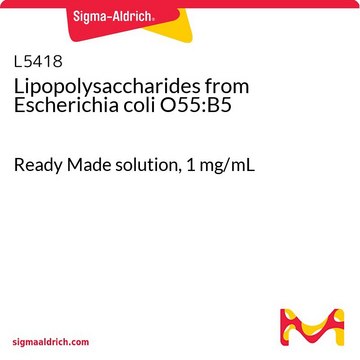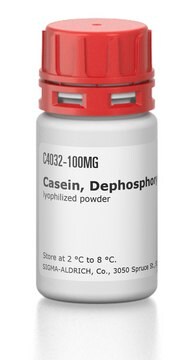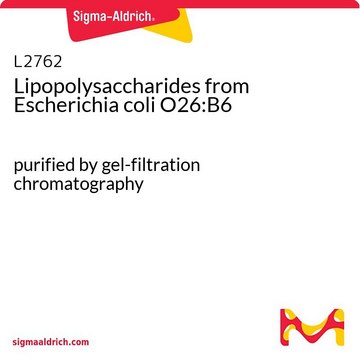F8666
Lipopolysaccharides from Escherichia coli O55:B5
FITC conjugate
Synonym(s):
LPS
About This Item
Recommended Products
biological source
Escherichia coli (O55:B5)
Quality Level
conjugate
FITC conjugate
form
lyophilized powder
extent of labeling
2-10 μg FITC per mg LPS
color
yellow to orange
solubility
H2O: 4.90-5.10 mg/mL, faintly hazy to hazy, pale yellow to yellow
shipped in
ambient
storage temp.
2-8°C
Looking for similar products? Visit Product Comparison Guide
General description
Application
Biochem/physiol Actions
Preparation Note
Other Notes
related product
Signal Word
Danger
Hazard Statements
Precautionary Statements
Hazard Classifications
Acute Tox. 2 Oral
Storage Class Code
6.1A - Combustible acute toxic Cat. 1 and 2 / very toxic hazardous materials
WGK
WGK 3
Flash Point(F)
Not applicable
Flash Point(C)
Not applicable
Personal Protective Equipment
Certificates of Analysis (COA)
Search for Certificates of Analysis (COA) by entering the products Lot/Batch Number. Lot and Batch Numbers can be found on a product’s label following the words ‘Lot’ or ‘Batch’.
Already Own This Product?
Find documentation for the products that you have recently purchased in the Document Library.
Customers Also Viewed
Our team of scientists has experience in all areas of research including Life Science, Material Science, Chemical Synthesis, Chromatography, Analytical and many others.
Contact Technical Service





